
The National Society Daughters of the American Revolution is a lineage-based membership service organization for women who are directly descended from a person involved in supporting the American Revolutionary War. A non-profit group, the organization promotes education and patriotism. Its membership is limited to direct lineal descendants of soldiers or others of the American Revolution era who aided the revolution and its subsequent war. Applicants must be at least 18 years of age and have a birth certificate indicating that their gender is female. DAR has over 190,000 current members in the United States and other countries. The organization's motto is "God, Home, and Country".

Edward Bates was an American lawyer, politician and judge. He represented Missouri in the US House of Representatives and served as the U.S. Attorney General under President Abraham Lincoln. A member of the influential Bates family, he was the first US Cabinet appointee from a state west of the Mississippi River.

Bellefontaine Cemetery is a nonprofit, non-denominational cemetery and arboretum in St. Louis, Missouri. Founded in 1849 as a rural cemetery, Bellefontaine has several architecturally significant monuments and mausoleums such as the Louis Sullivan-designed Wainwright Tomb, which is listed on the National Register of Historic Places.

Charles Nagel was a United States politician and lawyer from St. Louis, Missouri. He was Secretary of Commerce and Labor during President William Howard Taft's administration (1909–1913) and was one of the key founders of the United States Chamber of Commerce.

Adolphus Busch was the German-born co-founder of Anheuser-Busch with his father-in-law, Eberhard Anheuser. He introduced numerous innovations, building the success of the company in the late 19th and early 20th centuries. He became a philanthropist, using some of his wealth for education and humanitarian needs. His great-great-grandson, August Busch IV, is a former CEO of Anheuser-Busch.

Susan Elizabeth Blow was an American educator who opened the first successful public kindergarten in the United States. She was known as the "Mother of the Kindergarten."
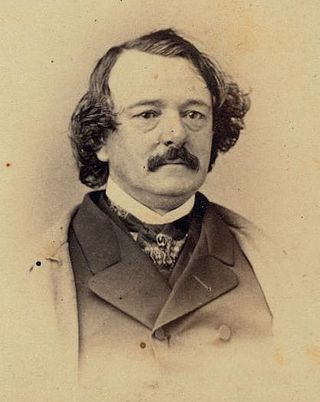
Henry Taylor Blow was a two-term U.S. Representative from Missouri and an ambassador to both Venezuela and Brazil.
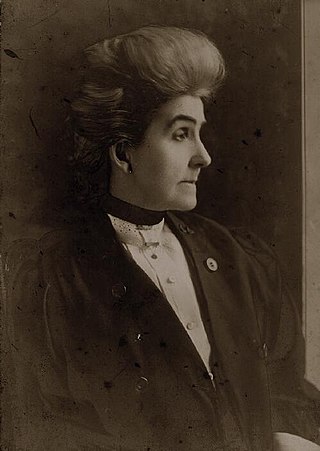
Phoebe Wilson Couzins was one of the first female lawyers in the United States. She was the second woman to serve as a licensed attorney in Missouri and the third or fourth to be a licensed attorney in the United States. She was the first woman admitted to the Missouri and Utah bars, and was also admitted to the Kansas and Dakota Territory bars. She was the first female appointed to the U.S. Marshal service. After her career in law, she played an active part in the Suffrage movement.

Marguerite Scypion, also known in court files as Marguerite, was an African-Natchez woman, born into slavery in St. Louis, then located in French Upper Louisiana. She was held first by Joseph Tayon and later by Jean Pierre Chouteau, one of the most powerful men in the city.

The St. Louis Equal Suffrage League was formed in 1910 in St. Louis, Missouri with the aim of "bring[ing] together men and women who are willing to consider the question of Equal Suffrage and by earnest co-operation to secure its establishment."
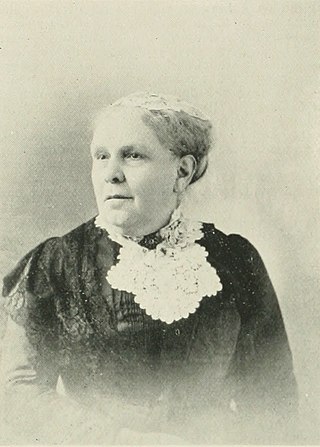
Rebecca Naylor Hazard was a 19th-century American philanthropist, suffragist, reformer, and writer from the U.S. state of Ohio. With a few other women, she formed the Woman Suffrage Association of Missouri and an Industrial Home for Girls in St. Louis. She organized a society known as the Freedmen's Aid Society, and served as president of the American Woman Suffrage Association.

Caroline Everett Risque Janis was an American painter, sculptor and a member of the early 20th-century artistic group The Potters.
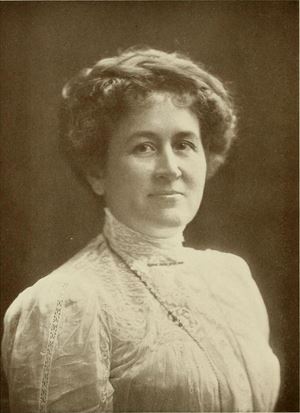
Adeline Palmier Wagoner was an American volunteer organizational leader and author. She served as president of the St. Louis, Missouri, branch of the National Plant, Flower and Fruit Guild, a charity for the poor and afflicted, and as president of the Shakespeare Tercentenary Society.

Cora Louise Boehringer was an American educator who was the first female superintendent of schools in Yuma County, Arizona. She has been called "the mother of the Arizona educational system". In 2008 she was inducted into the Arizona Women's Hall of Fame.

Thekla M. Bernays was an American author, journalist, artist, art collector, speaker, and suffragette.

M. Louise Thomas was the founder of Lenox Hall, a girls' school in St. Louis.

Louise McNair (1869-1956) was a mathematics teacher and the headmistress of Hosmer Hall school for girls in St Louis.
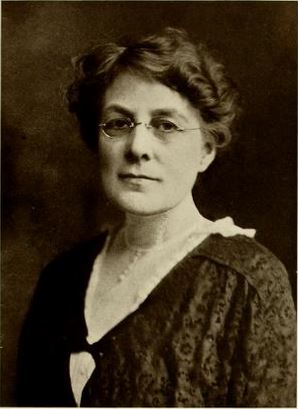
Alice Curtice Moyer Wing was an American writer and suffragist. Her book A Romance of the Road is a manifesto of the suffragist argument.

Susan Paul Smith Vashon was an American educator, abolitionist and clubwoman. Vashon was active in helping soldier and refugees during the Civil War. She was part of the Underground Railroad. She was also a teacher and a principal. Vashon helped promote and establish several women's clubs in Missouri.

Jane Marsh Parker was an American author and historian of the long nineteenth century. She was a frequent contributor to The Churchman and other publications of the Protestant Episcopal church. She was the author of novels and religious works, including Toiling and Hoping ; The Boy Missionary (1859); Losing the Way (1860); Under His Banner (1862); The Morgan Boys (1859); Rochester, a Story Historical ; The Midnight Cry ; Life of S. F. B. Morse (1887); and Papers Relating to the Genesee Country (1888), among other publications. A pioneer clubwoman, Parker founded the Fortnightly Ignorance Club of Rochester, New York, which was the first women's club in the state after Sorosis.





















